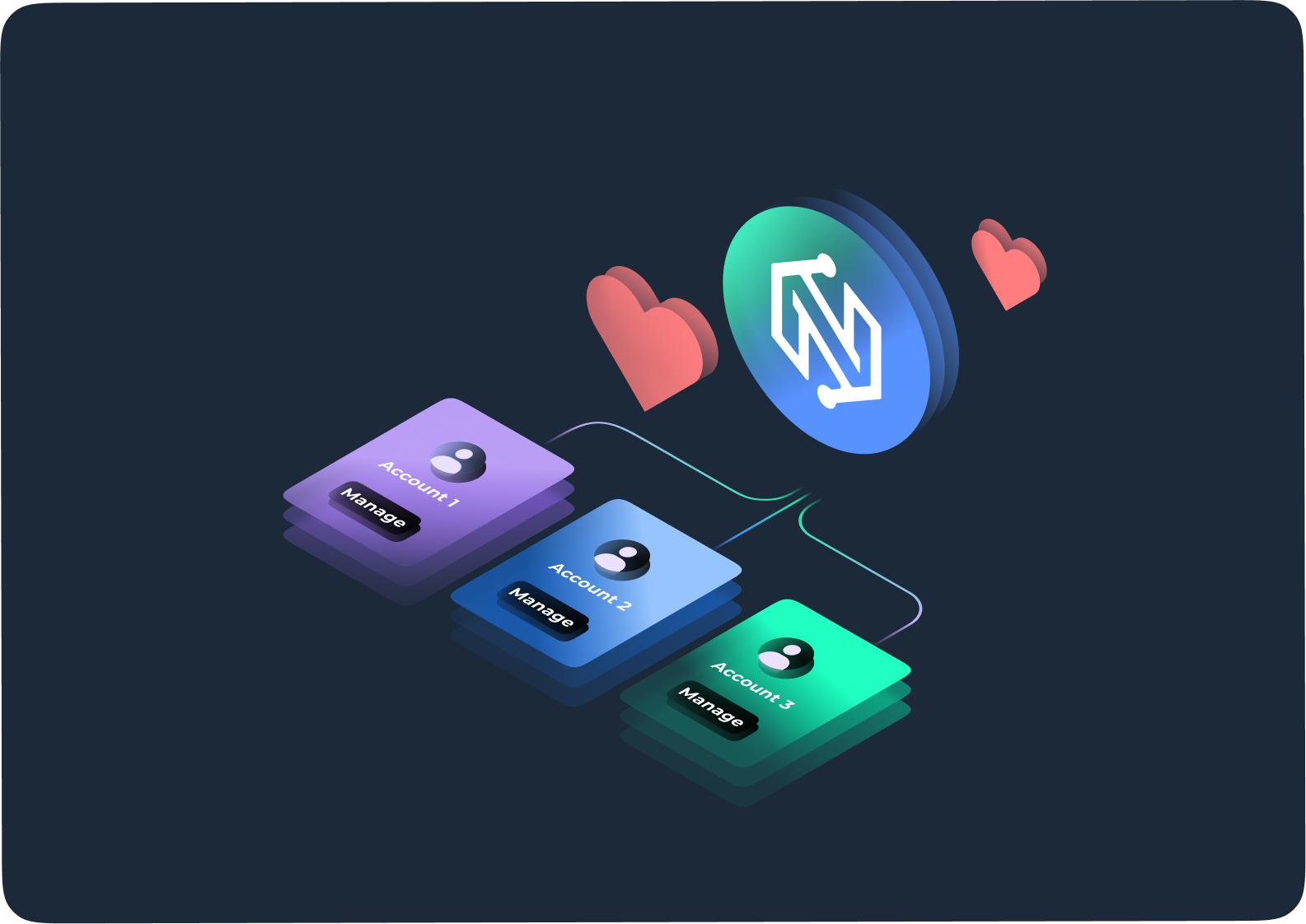Many people ask the same question before using proxies: are proxy servers safe?
The truth is that safety depends on how they’re used and, most importantly, on the provider you choose. In this guide, we’ll look at the risks, the benefits, and how to make sure you’re using a safe proxy server.
What Are Proxy Servers and How Do They Work?
At the simplest level, a proxy server is just a middle step between you and the internet.
Instead of visiting a site directly, your request goes through the proxy first. The proxy changes your IP address and then forwards the request to the site. The result? The site only sees the proxy’s IP, not yours.
This can be useful for privacy, for testing things in different regions, or for handling multiple accounts more safely.
Definition of a Proxy Server
A proxy server is basically a computer or service that makes web requests on your behalf.
Think of it as a go-between: you connect to the proxy, the proxy connects to the website, and then it sends the response back to you. Because the site only sees the proxy’s IP, it gives you another layer of separation from your real device and network.
Types of Proxy Servers (Residential, Mobile, Datacenter)
- Residential proxies – These use IP addresses given out by internet service providers to real homes. To a website, they look like normal people browsing from their living room Wi-Fi.
- Mobile proxies – These run through 3G, 4G, or 5G networks. Since mobile IPs are constantly being shared and rotated among thousands of users, they’re harder to single out.
- Datacenter proxies – These don’t come from homes or carriers but from data centers. They’re fast and usually cheaper, but easier for websites to recognize because they don’t look like “real” user connections.
Tip: Learn more about different types of proxies in our blog: Mobile Proxy vs Residential Proxy vs Datacenter: What’s the Difference?
Common Uses for Proxies in Business and Research
Companies and individuals use proxies for a mix of practical reasons:
- Doing market research without getting blocked when collecting large amounts of public data.
- Ad verification, to check how campaigns actually appear in different countries.
- Running multiple accounts, where each one needs a separate IP identity.
- Geo-targeted testing, like seeing a website as if you were in another country.
- Adding a layer of privacy protection by hiding your real IP.
Are Proxy Servers Safe to Use?
So, are proxy servers safe? The short answer is: sometimes yes, sometimes no. A proxy is just a tool. Whether it’s safe depends on how it’s set up and who provides it.
How Safe Are Proxy Servers for Everyday Browsing?
For casual browsing, a proxy server can be reasonably safe. If all you’re doing is reading articles, comparing prices, or looking at geo-blocked websites, a safe proxy server hides your IP and gives you a bit more privacy. But there’s a catch. Not all proxies are the same quality.
Risks of Using Low-Quality or Untrusted Providers
Problems usually come from weak providers. Some proxy servers recycle IPs that are already flagged. That means more captchas, logouts, or even account suspensions.
Others may be unstable, dropping your connection when you need it most. If the service doesn’t clearly state how they handle IPs and traffic, it’s hard to trust them with important tasks.
Benefits of a Safe Proxy Server
A safe proxy avoids these issues. With clean, high-quality IPs you get:
- Steadier connections without constant disruptions.
- Access to websites across different regions.
- The ability to run multiple accounts without them interfering with each other.
In short, a safe proxy server makes browsing and account management more reliable, while cutting down the risk of bans or errors.
Are Free Proxy Servers Safe?
Many people try free proxies first, but the question is, are free proxy servers safe?
In most cases, they are not. While they may look convenient, free proxies often come with risks that can outweigh any short-term benefits.
Hidden Risks Behind Free Proxy Servers
Free proxy servers usually cut corners. Some track your activity or insert ads into the websites you visit. Others sell browsing data to third parties.
On top of that, free proxies often use recycled or already blocked IPs. That means constant captchas, login failures, or sudden disconnections, or blocked and banned accounts.
Why Premium Proxies Are Safer Than Free Ones
With a premium provider, the situation changes completely. Paid proxies usually come with:
- Clean IPs that aren’t flagged or abused.
- Stable sessions without random drops.
- Transparent policies on how traffic is handled.
This makes premium proxies far more reliable and secure. If safety and performance matter, a paid solution is almost always better than a free proxy server.
Are Proxy Servers Legal and Trustworthy?
People often ask not just are proxy servers safe, but also whether they’re legal. The answer is usually yes, but with a few important exceptions.
Are Proxy Servers Illegal In Some Countries?
In most regions, using a proxy server is perfectly legal. Businesses rely on them for research, security, and testing every day.
But in some countries, local laws restrict or ban the use of proxies and VPNs. If you’re in one of those places, you need to be careful. It’s always smart to check the local rules before connecting.
Safe vs Unsafe Use Cases (Business vs Abuse)
The legality and trustworthiness of proxies often depend on how they’re used.
- Safe use cases: market research, ad verification, geo-testing, or managing accounts for business tasks. These are common, practical, and generally accepted.
- Unsafe use cases: breaking platform rules, hiding fraud, or spreading harmful content. This type of activity is what gives proxies a bad reputation.
The technology itself isn’t “bad.” It’s all about the intent.
How to Choose a Safe Proxy Provider
A trustworthy provider makes all the difference. Signs of a safe proxy server provider include:
- Clear policies (no hidden logging or shady terms).
- Clean IPs that aren’t recycled or flagged.
- Transparent pricing instead of “too good to be true” offers.
- Real customer support that can help if issues come up.
Picking a reliable provider means you can use proxies legally and safely, without worrying about hidden risks.
Why NodeMaven Proxies Are Safe and Reliable
When it comes to choosing a proxy provider, safety and stability matter most. NodeMaven was built with these points in mind, offering features that keep connections secure and reliable.
High-Quality IP Filtering for Safer Connections
Not every IP is worth using. That’s why NodeMaven applies an IP Quality Filter to screen out flagged or low-quality addresses. You connect only through clean, trusted IPs, which lowers the chance of bans, blocks, or suspicious activity warnings.
Long Sticky Sessions and Stable Performance
For tasks that take time, whether it’s managing accounts, testing campaigns, or working with dApps, stability is key. NodeMaven offers sticky sessions lasting up to 24 hours, so you can hold the same IP without constant interruptions.
Flexible Pricing and Trial Options
Safety shouldn’t come at an impossible price. NodeMaven’s model includes a €3.99 trial for 1GB, flexible pay-as-you-go options, and monthly plans with traffic rollover. This means you can start small, test everything, and scale up when it makes sense.
Real Experts Ready to Help
Even with the best proxies, setup questions come up. That’s why NodeMaven offers real support from real people. Whether it’s WhatsApp, Telegram, Slack, or Zoom, an expert is there to help with onboarding, troubleshooting, or fine-tuning your setup.
Why Businesses Trust NodeMaven for Secure Proxy Use
From arbitrage teams to researchers and marketers, businesses choose NodeMaven because it delivers stable uptime, clean IPs, and expert support. Having access to both residential and mobile proxies in one plan adds extra flexibility. Add in real support from specialists, and you get a service designed to keep proxy use safe, efficient, and frustration-free.


